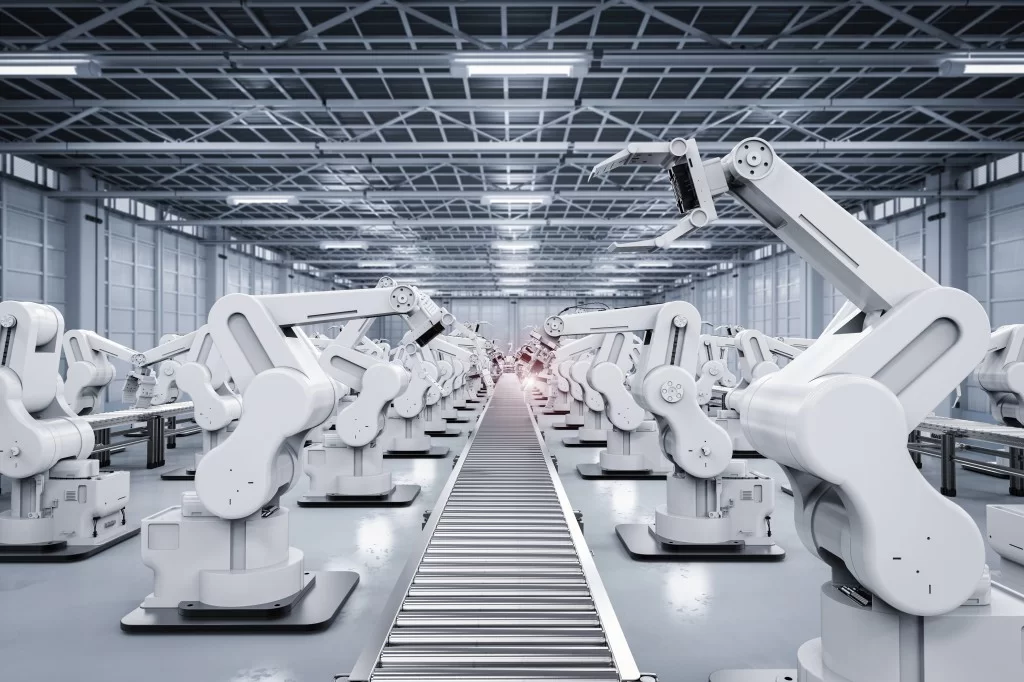In today’s rapidly evolving business landscape, automation technologies and artificial intelligence have revolutionized the way industries operate. From leveraging data analytics for enhanced efficiency to implementing smart building management systems for sustainability and cost reduction, businesses have embraced these cutting-edge solutions. However, amidst the hype surrounding these modern technologies, it is crucial not to overlook the role played by an older yet transformative solution: cloud technology. This article delves into the pivotal role of cloud computing in driving automation in manufacturing and transforming industries worldwide.
Cloud Adoption Fuels Manufacturing Innovation:
According to the 2022 WIPRO Redefining Manufacturing for The Digital Era report, the manufacturing industry leads in adopting cloud-based technologies, with 32% of manufacturers being labeled as “cloud leaders.” Remarkably, this sector outpaces all other industries in cloud adoption. The report further reveals that 56% of manufacturing firms implementing cloud-based systems have witnessed tangible productivity gains. But what exactly makes this seemingly straightforward organizational change so impactful?
Enhanced Connectivity and Collaboration:
Cloud computing serves as the backbone for seamless connectivity and collaboration in manufacturing automation. By leveraging the cloud, manufacturers can break free from isolated systems and create a unified ecosystem that spans their entire operations. Whether it’s coordinating supply chain activities, synchronizing production processes, or facilitating real-time communication between departments and teams, the cloud acts as the enabling force behind these transformative capabilities.
Scalability and Flexibility:
One of the key advantages of cloud technology is its ability to scale resources up or down based on manufacturing demands. By leveraging cloud infrastructure, manufacturers can dynamically adjust their computing power, storage, and software requirements to match their production needs. This scalability ensures that businesses can efficiently handle fluctuating workloads, optimize resource allocation, and respond promptly to market changes, thereby improving overall operational efficiency and agility.
Data-Driven Insights:
The integration of cloud-based analytics platforms empowers manufacturers with invaluable insights derived from vast amounts of data. By centralizing data storage and processing in the cloud, manufacturers can harness advanced analytics tools to gain actionable intelligence. These insights facilitate predictive maintenance, quality control, demand forecasting, and process optimization, enabling manufacturers to make data-driven decisions and enhance their overall performance.
Cost Savings and Security:
Cloud technology offers manufacturers a cost-effective alternative to traditional IT infrastructure. By leveraging cloud-based services, businesses can reduce capital expenditure on hardware and software, maintenance costs, and energy consumption. Additionally, cloud service providers implement robust security measures, including data encryption, authentication protocols, and regular backups, ensuring the protection of sensitive manufacturing data from cyber threats and unauthorized access.
While the spotlight often shines on advanced automation technologies, it is essential to recognize the indispensable role played by cloud technology in driving manufacturing innovation. As demonstrated by the increasing adoption rates and tangible benefits observed by industry leaders, the cloud provides a foundation for enhanced connectivity, scalability, data-driven insights, cost savings, and security. By embracing cloud-based systems, manufacturers can unlock the full potential of automation and propel their industries into a new era of efficiency and competitiveness.


